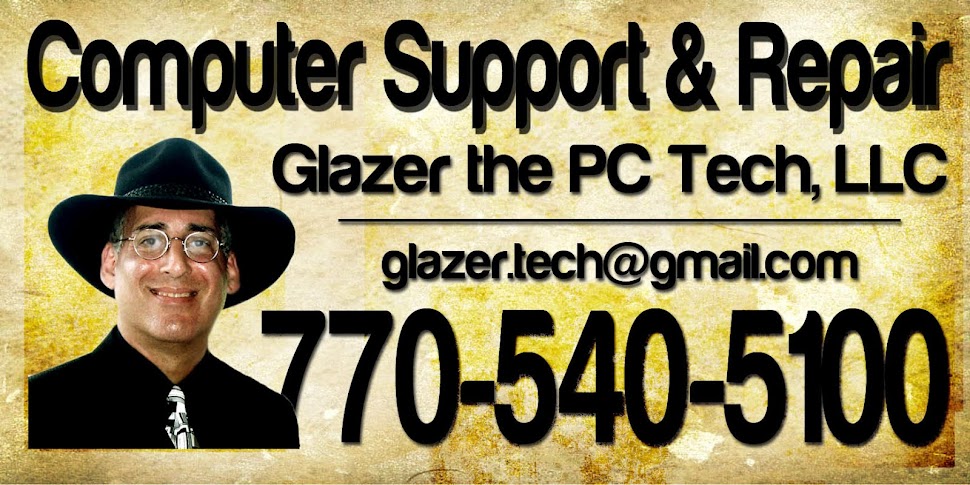Computer Care: Know your PC and its components | ||

POSTED: November 16, 2012 11:59 p.m.
| ||
It’s imperative if you own a computer to know what the components are called and to know a few things about them.
You know in your car what the tires are and that they need to be properly inflated and occasionally rotated, that the radiator needs coolant and the oil needs to be changed regularly. There are similar things you should know about your computer to keep it running optimally.
I’ve had clients confuse basic terminology while describing a problem.
It makes it easier when you call your geek friend or relative (or technician) for assistance, that you know what things are. When I hear that the home page on the desktop keeps changing, initially I’ve got to determine if it’s the desktop or the browser that is corrupt.
The browser is what connects to the Internet. It could be Internet Explorer, Firefox, Chrome or Opera. That has a home page. It’s the web page that you see when the application is first opened. It’s your start page online.
The computer desktop, on the other hand, has an image of either a graphic design or a photo of yours or Microsoft’s, and is covered with icons.
Either can change without your knowledge or permission, but are two totally different problems.
An icon can be your hero or a star, but on a computer it is a graphic representation of a program, a little picture.
The cursor is the blinking little vertical line, pointer or hand on your display (monitor).
Many people say their mouse is frozen when actually it’s the cursor. If the mouse were frozen, you couldn’t move it on your desk. This is semantics, yes, but it’s still important when troubleshooting.
The Control Panel is something everybody should familiarize themselves with. It’s the place to go to modify just about anything in the system. It is the dashboard of your computer.
In the Control Panel, you can change the tracking speed and click rate of your mouse and fine tune the way it operates, swap the desktop background or access your account to change your name or picture.
You can find your printer, adjust the keyboard rates, or change power options, as well as a plethora of other adjustments.
In the last few versions of Windows, Control Panel has its own search box in the upper right-hand corner. If you type mouse, it will show all items relating to the mouse. It saves the time of you searching throughout the Control Panel for what you need.
The optical drive in a computer is the CD/DVD drive and is called such because it’s run from a light or laser.
Speaking the optical drive, here’s a tip for you: There’s a tiny hole near the release button on most drive doors.
This is a manual release in case the drive gets stuck.
Open a paper clip and push it in the hole. When you feel resistance, push harder and the drive will pop open, even without power.
To reboot a computer is to turn it off and then on again.
While on the subject, it is a good idea to reboot and even turn off your computer every so often. By rebooting, you not only fix various wrongs in the system, but also refresh the system RAM (memory), making it run faster.
The difference between RAM and hard drive is often confused. When your RAM is full, you are running too many programs at once (or haven’t rebooted in a while) and the system goes into brain lock.
When the hard drive is full, you’ve physically run out of storage space.
RAM is virtual and temporary, while the hard drive is real and physical. RAM is cleared each time you reboot.
The hard drive, like your closet, will eventually reach capacity.
Every computer with Internet access needs protection from viruses and malware. Often this requires two separate programs.
Don’t assume because you have an antivirus app installed that everything will be covered. All they look for are viruses. Internet security suites, on the other hand, usually have a more comprehensive protection.
That said, just because you have a program installed, don’t think you’ve got it covered either. It needs to be configured, updated on a regular basis and scheduled to scan your hard drives frequently.
I’ve found clients’ computers infected that have had Norton, McAfee, Kaspersky or AVG installed. They all wondered how that could have happened, but they never ran a scan. These programs will only run themselves if you tell them to. They must be configured properly. I can’t stress this enough.
There are malcontents, reprobates — call them what you will — who stay up late each night uploading malware and viruses to the Internet. If you fail to update your system’s defenses on a regular basis, your computer will become corrupted by these nefarious infections.
The more familiar you become with your computer, the easier it will be to identify problems and the easier it will be to describe what goes wrong, when it does.
Arthur Glazer is a freelance writer and computer technician in Gainesville. His column appears biweekly on the Business page and on gainesvilletimes.com. |

No comments:
Post a Comment
Got a Comment - or a quick question...